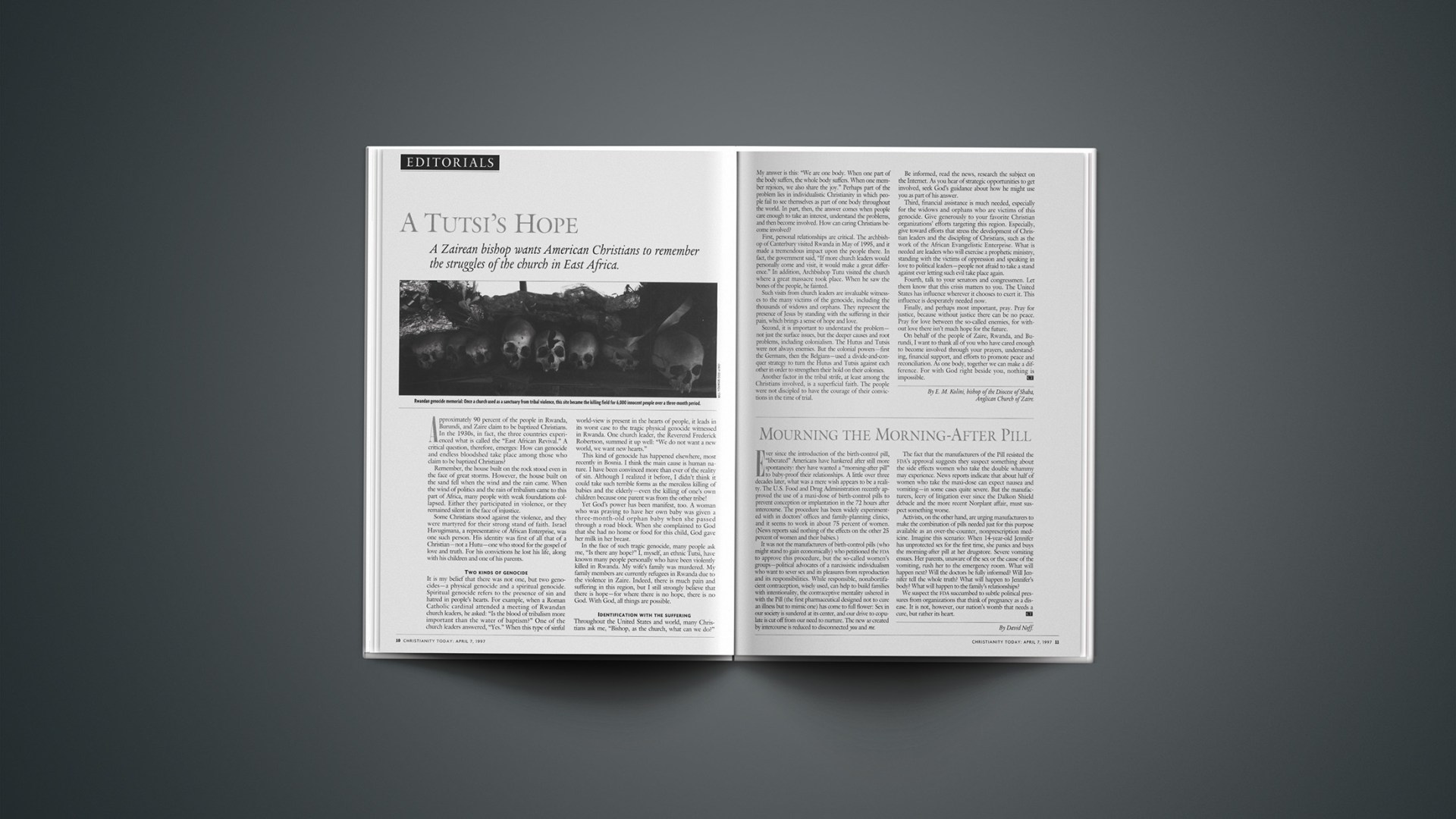Ever since the introduction of the birth-control pill, “liberated” Americans have hankered after still more spontaneity: they have wanted a “morning-after pill” to baby-proof their relationships. A little over three decades later, what was a mere wish appears to be a reality. The U.S. Food and Drug Administration recently approved the use of a maxi-dose of birth-control pills to prevent conception or implantation in the 72 hours after intercourse. The procedure has been widely experimented with in doctors’ offices and family-planning clinics, and it seems to work in about 75 percent of women. (News reports said nothing of the effects on the other 25 percent of women and their babies.)
It was not the manufacturers of birth-control pills (who might stand to gain economically) who petitioned the fda to approve this procedure, but the so-called women’s groups—political advocates of a narcissistic individualism who want to sever sex and its pleasures from reproduction and its responsibilities. While responsible, nonabortifacient contraception, wisely used, can help to build families with intentionality, the contraceptive mentality ushered in with the Pill (the first pharmaceutical designed not to cure an illness but to mimic one) has come to full flower: Sex in our society is sundered at its center, and our drive to copulate is cut off from our need to nurture. The new us created by intercourse is reduced to disconnected you and me.
The fact that the manufacturers of the Pill resisted the FDA’s approval suggests they suspect something about the side effects women who take the double whammy may experience. News reports indicate that about half of women who take the maxi-dose can expect nausea and vomiting—in some cases quite severe. But the manufacturers, leery of litigation ever since the Dalkon Shield debacle and the more recent Norplant affair, must suspect something worse.
Activists, on the other hand, are urging manufacturers to make the combination of pills needed just for this purpose available as an over-the-counter, nonprescription medicine. Imagine this scenario: When 14-year-old Jennifer has unprotected sex for the first time, she panics and buys the morning-after pill at her drugstore. Severe vomiting ensues. Her parents, unaware of the sex or the cause of the vomiting, rush her to the emergency room. What will happen next? Will the doctors be fully informed? Will Jennifer tell the whole truth? What will happen to Jennifer’s body? What will happen to the family’s relationships?
We suspect the FDA succumbed to subtle political pressures from organizations that think of pregnancy as a disease. It is not, however, our nation’s womb that needs a cure, but rather its heart.
Copyright © 1997 Christianity Today. Click for reprint information.










